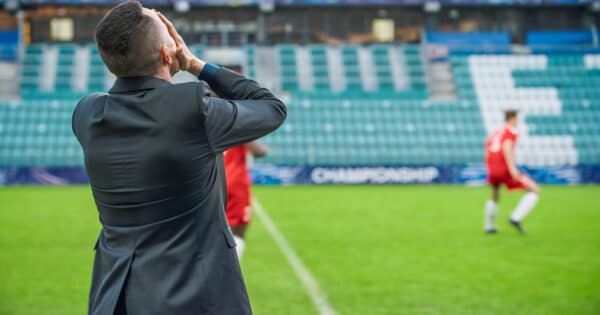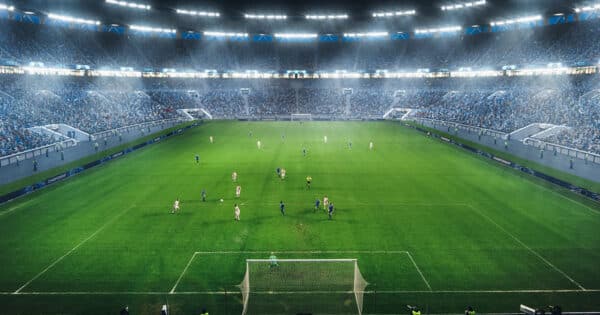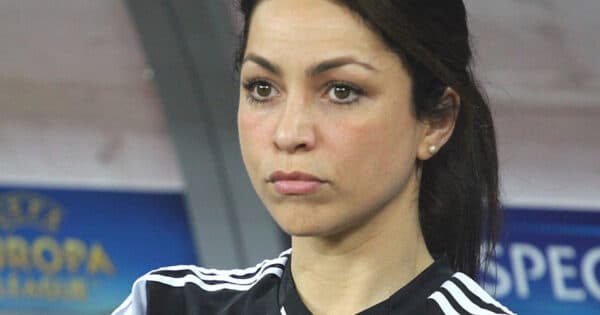Director disqualification in football: What Reading FC tells us about governance in sport
Reading FC’s recent turmoil offers a timely reminder of the disqualification rules affecting those at the helm of football clubs. We explore the overlap between corporate governance and football regulation—and why both matter more than ever.
A sporting crisis with corporate law parallels
The recent disqualification of Reading FC’s previous majority owner, Dai Yongge, under the English Football League (EFL) rules threw the club—and its supporters—into a period of uncertainty. But beyond the headlines and court proceedings, the case raised deeper questions about governance, accountability, and who should be permitted to control companies and clubs alike.
While football often follows its own regulatory path, the structures that underpin it increasingly mirror those found in corporate law—particularly when it comes to disqualification.
Understanding the Owners’ and Directors’ Test (OADT)
In professional football, both the EFL and the Premier League operate an Owners’ and Directors’ Test (OADT). This test is not merely a tick-box exercise—it determines whether individuals can lawfully act as a director or exercise control over a football club. While aligned in principle with corporate disqualification law, the OADT applies stricter and broader criteria in certain areas.
Disqualifying events include:
- Unspent criminal convictions, particularly for dishonesty or fraud;
- Being subject to a company directors disqualification;
- Past involvement in clubs suffering repeated insolvency;
- Regulatory bans from other sports or professions;
- Insolvency or bankruptcy (whether personal or corporate);
- Influence over multiple clubs, or control exercised through shadow directorships.
These rules extend beyond technical ownership. Those who exert real influence—even if informally—may still be caught.
Reading FC: What happened
Mr Yongge’s disqualification under the OADT, disclosed in open court in March 2025, triggered an obligation to divest his interests in Reading FC. While the initial deadline was set for 4 April 2025, this was extended multiple times by the EFL following reports of progress in the sale negotiations and at the request by the Club. The extensions reflected the complexities of the transaction, which include cross-company asset structures and competing security interests.
During the process, the EFL confirmed that if divestment was not achieved by the extended deadline, it retained the power to suspend the Club, although any such suspension would be a last resort.
The case was further complicated by litigation between Yongge and Rob Couhig, a previous prospective buyer. A court recently declined to grant an injunction in Yongge’s favour, but noted the need for a practical solution—potentially involving escrow arrangements or alternative security—to unblock the transaction.
From a legal standpoint, this is a classic example of overlapping corporate and regulatory obligations. Yongge may have remained a shareholder on paper, but under the EFL’s rules, he was required take active steps to remove himself from the management and control of the club.
Fortunately for the Club and its supporters, a deal was ultimately reached and on 14 May 2025 the EFL approved the acquisition of 100% of the shareholding in Reading FC, which included the acquisition of the stadium and training ground, to Redwood Holdings Limited.
Corporate law context: CDDA 1986
In English company law, the Company Directors Disqualification Act 1986 (CDDA) governs when an individual can be barred from acting as a director. Unlike the OADT, disqualification under the CDDA usually results from court proceedings or formal undertakings to the Insolvency Service.
Disqualifying conduct can include:
- Misuse of company funds;
- Failure to keep proper records;
- Trading while insolvent;
- Repeated corporate insolvencies;
- Fraudulent or dishonest behaviour.
Penalties for breach are severe. A disqualified individual cannot be involved in the promotion, formation, or management of a company for the term of their ban. Doing so can lead to criminal prosecution and personal liability for company debts.
While the OADT is more preventive and regulatory in focus, both systems share the same goal: protecting stakeholders from those who should not be in control.
The path ahead: tougher rules, higher standards
Reading FC is not the first, nor will it be the last, club to face governance challenges. As ownership structures grow more complex and international, regulators are under pressure to tighten controls. The EFL, for example, introduced new disqualifying criteria in 2023—such as bans imposed in other sports and second bankruptcies—even where convictions have been spent.
There have also been calls for the test to evolve further, perhaps allowing for broader discretion in cases where overseas conduct, though not criminal under English law, raises serious integrity concerns. Westminster and football bodies alike are exploring reforms aimed at increasing transparency and long-term sustainability.
Lessons for clubs and companies alike
The Reading FC saga highlights the critical role that disqualification regimes play in both corporate and sporting contexts. Whether governed by the CDDA or the OADT, the principle is the same: directors must be fit to govern.
How Moooe Barlow can help
For corporate and sports lawyers, the message is clear—directorship is a privilege, not a right. And for those advising within sport, it’s a reminder that robust regulation is essential to protect not just finances, but fans, communities and the integrity of the game itself.
Our team of expert sports lawyers are vastly experienced and have a proven track record of successfully supporting and delivering for our sports sector clients.







